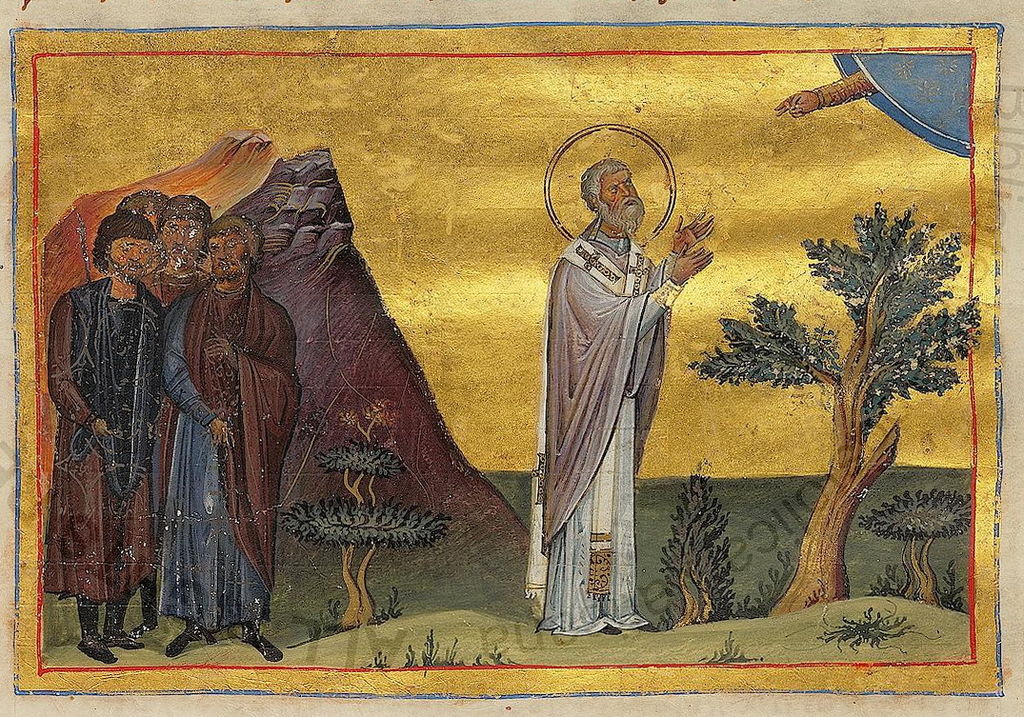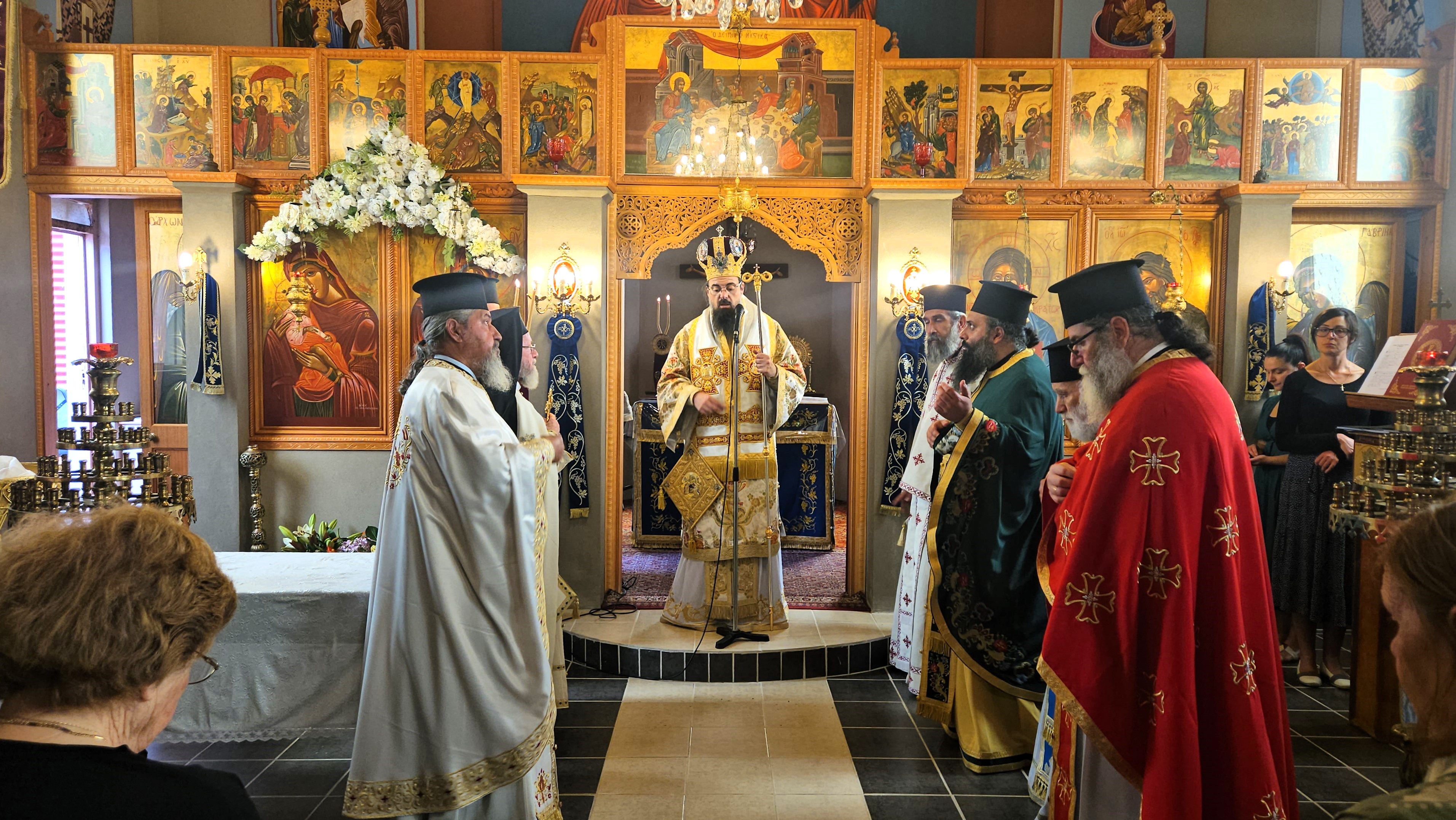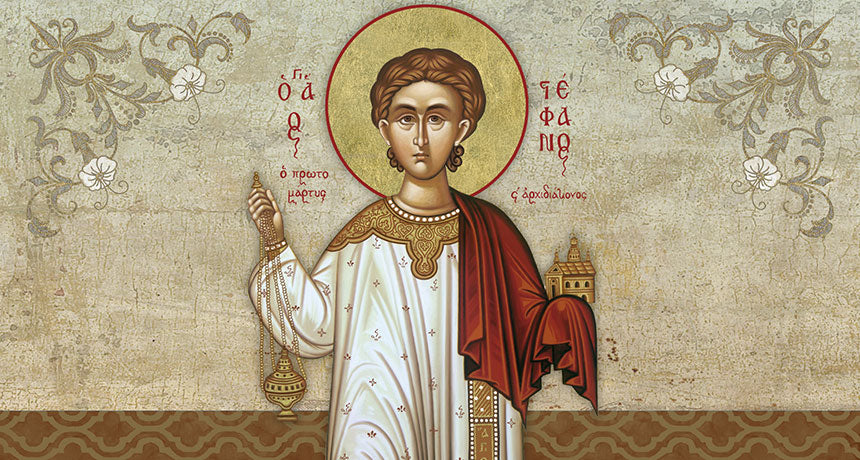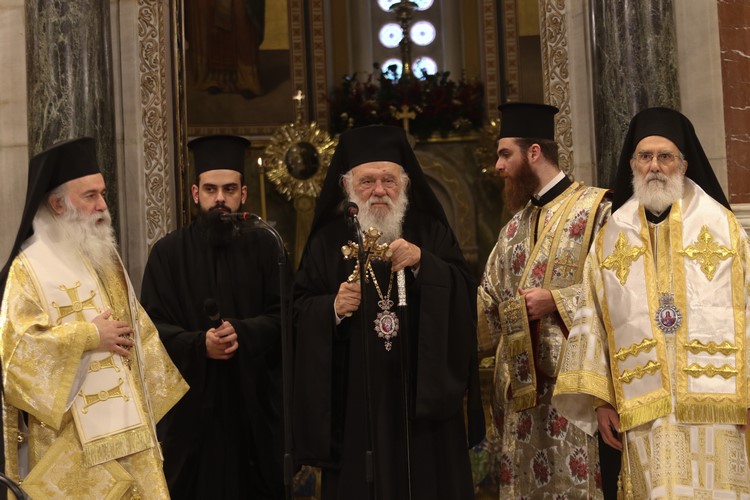Saint Gregory, Bishop of Agrigentum (23 November)


Saint Gregory, Bishop of Agrigentum, was born on the island of Sicily, in the village of Pretorium, not far from the city of Agrigentum, of the pious parents Chariton and Theodota. The infant Gregory was baptized by the bishop of Agrigentum, Pataimonus. At ten years of age the studious boy mastered writing and was able to read, and to sing church hymns. At twelve years of age Saint Gregory was given to the clergy, and he was put under the spiritual guidance of the archdeacon Donatus. Saint Gregory spent the next ten years in the Agrigentum church. Then, however, an angel of the Lord appeared to the holy youth, who had a fervent desire to visit Jerusalem, and said that God had blessed his intention.
At Jerusalem Saint Gregory was presented to Patriarch Macarius (563-574), who retained the pious youth for service in his own cathedral church, ordaining him deacon. The soul of Saint Gregory thirsted for monastic labors, and the Patriarch gave his blessing, allowing him go to a monastery on the Mount of Olives. After a year Saint Gregory departed this monastery for a desert Elder, who for four years taught him spiritual wisdom, humility and the principles of monastic life. The ascetic, foreseeing in Saint Gregory a future great luminary of the Church, gave him a blessing to forsake the solitary life.
Having left the Elder, Saint Gregory dwelt for a certain time at Jerusalem, and then went to Constantinople, where he was received with love by the brethren of the monastery of the holy Martyrs Sergius and Bacchus. The ascetic efforts of Saint Gregory were noticed by Patriarch Eutychius of Constantinople (552-565), at whose insistence the saint participated in the Fifth Ecumenical Council (553). At the completion of the Council Saint Gregory set off for Rome, to venerate the graves of the holy Apostles Peter and Paul.
During this time the bishop of Agrigentum died. The elder clergy and illustrious citizens of Agrigentum journeyed to Rome with a request for the Pope to determine a successor for their late hierarch from among a list of candidates they were presenting. The Pope, however, declined their proposal through divine inspiration, and instead summoned Saint Gregory to serve them as bishop.
For a few years Saint Gregory peacefully guided the flock entrusted to him by God. He was a defender of the down-trodden, a wise preacher, and miraculous healer. As archbishop, Saint Gregory led the life of an ascetic monk, fervently observing monastic vows. The flock loved their hierarch and trusted in him. But there were also malicious people who had resolved to slander him.


While Saint Gregory was in church, these vicious people secretly led a bribed harlot into his chambers, and then in front of the crowd which accompanied the bishop to the doors of his house after services, they led her out and accused Saint Gregory of the deadly sin of fornication. They placed the holy bishop under guard. The people attempted to defend their bishop, but were unsuccessful. At the trial the harlot gave false testimony against Saint Gregory. Just as she pronounced the words of slander, she went into a fit of frenzied rage. The judges accused the saint of sorcery. Saint Gregory was sent for judgment to the Roman bishop together with a report about his “crimes.”
The Pope, after reading the charges, did not want to see the accused, and gave orders to remand him to prison. The saint endured his humiliation humbly, dwelling in constant prayer. His prayerful effort and wonderworking gifts quickly became known through the city and the surrounding region. Pious Romans began to gather at the prison, whom the imprisoned saint taught about the righteous life, and he implored the Lord to heal the sick.
After two years, a clairvoyant Elder named Mark, who had known Saint Gregory since youth, came to the Pope. The Elder did not believe the charges and he persuaded the Pope to convene a Council to decide Gregory’s case. At the invitation of the Pope, many clergy from the city of Agrigentum came to the Council, together with all those making accusations against the saint, including the harlot. From Constantinople three bishops and the imperial dignitary Marcian came to Rome. Along the way Marcian had fallen grievously ill. On the advice of many people who had received healing through the prayers of Saint Gregory, servants carried the dying man to the prison where the wonderworking saint languished. Through the prayers of Saint Gregory the Lord granted healing to Marcian.
At the Council the slanderers attempted to renew their accusations, and as their chief proof they presented the deranged harlot to the judge, declaring that Gregory had bewitched her. But the saint prayed over her and cast out the devil. The woman came to her senses and told the Council the whole truth. The slanderers were brought to shame and judged. Marcian even wanted to execute them, but Saint Gregory implored forgiveness for them.
Saint Gregory returned in honor to his own cathedral, and surrounded by the love of his flock, he guided the Church until his own peaceful demise.
Saint Gregory, the son of pious parents named Chariton and Theodora, was born in Agrigentum, a city of Sicily, and was great in virtue from his childhood. He was baptized, brought up, and tonsured reader by Bishop Potamion during the reign of Justinian II, in the seventh century. At the age of eighteen he made a pilgrimage to Jerusalem, where he was ordained deacon by Macarius, Bishop of Jerusalem. He traveled to Constantinople, and then to Rome where he was consecrated Bishop of his native Agrigentum. As Bishop of Agrigentum he worked many miracles and shone brilliantly in virtue, but also suffered many great temptation; from the priests Sabine and Crescentius, who so envied him that they slandered him to the Pope as a fornicator and had him cast into prison for two and a half years. In the end, however, he vindicated himself by casting the demon out of the woman who had falsely accused him of committing sin with her. Saint Gregory reposed in peace in deep old age.
Gregory was born of devout parents, Chariton and Theodota in Sicily near the town of Agrigentum, where he was later bishop,. His entire life was imbued with God’s wonderful miracles. In a miraculous manner, he went to Jerusalem; in a miraculous manner, he was chosen as bishop; and in a miraculous manner, he was saved from slander. He himself was a great miracle-worker, for he was a great God-pleaser, a great spiritual father and an ascetic. He participated at the Fifth Ecumenical Council in Constantinople in 553 A.D. After difficult trials he reposed peacefully near the end of the sixth century or the beginning of the seventh.
Apolytikion of Gregory, Bp. of Agrigentum
First Tone
O God of our Fathers, ever dealing with us according to Thy gentleness: take not Thy mercy from us, but by their entreaties guide our life in peace.
Kontakion of Gregory, Bp. of Agrigentum
Fourth Tone
With the Holy Spirit’s rays, which shine a great light, doth the Church illuminate the way of them that celebrate thy joyous falling asleep today, O righteous Father, supremely blest Gregory.
Source: oca.org / goarch.org / westserbdio.org




